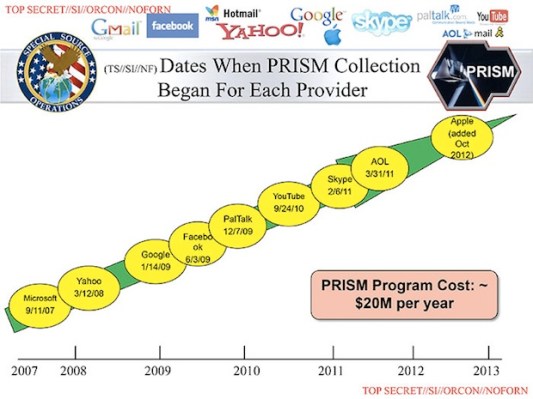The fog of confusion is slowly lifting and the facts surrounding the NSA’s PRISM surveillance program are becoming a little bit clearer. According to a new report by the New York Time’s Claire Cain Miller, the tech companies that allegedly helped the government to spy on their people did indeed not provide a direct access back door to their servers.
Instead, the New York Times report claims, they made it easier for the government and the companies, including Microsoft, AOL, Apple, Facebook, Yahoo and Paltalk, “to more efficiently and securely share the personal data of foreign users in response to lawful government requests.”
In some instances, the report says, the companies did change their computer systems to do so. Google and Facebook, for example, apparently discussed plans to build “secure portals” that would allow a government agency to request data, which the companies would then upload to these servers for the government to retrieve. That sounds a little bit like a dead drop from an espionage novel, but some variation of these rooms has long existed in telco switching centers in the physical world.
The report also details one instance where an agent installed software on one of the company’s servers (which one isn’t clear) and used it to download data to a laptop for “several weeks.”
Just like the original report claims, real-time access is apparently also an option.
All of this, of course, doesn’t immediately jibe with the company’s outright denials that they had any knowledge of this. The New York Times argues that the employees who were handling this information were likely not allowed to discuss their work – though it’s unclear how all of this would go unnoticed inside a company like Google or Facebook.
